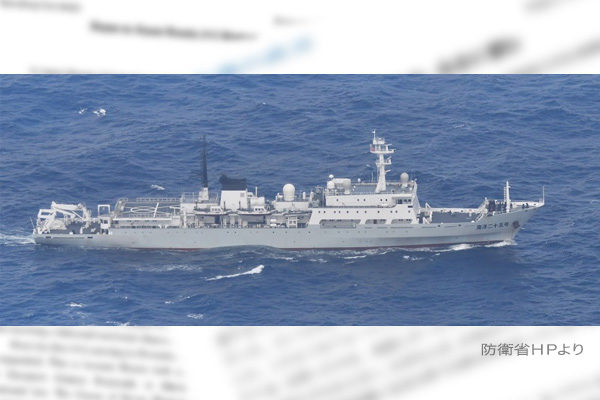On August 31, a Shupang-class survey ship of the Chinese Navy intruded into Japanese territorial waters in the Tokara Strait off Kuchinoerabu Island in Kagoshima Prefecture. In response to the Japanese government’s protest, China’s Ministry of Foreign Affairs on September 2 claimed that China exercised the “right of transit passage” through an international straight and that the passage was legitimate.
Is the Tokara Strait really an international strait? Why did the Chinese ship pass through the strait that is narrower than the Osumi Strait (off the Osumi Peninsula in Kagoshima Prefecture) or the Miyako Strait (between Miyako Island in Okinawa Prefecture and the main island of Okinawa)? This essay analyzes the passage’s meaning under international law and China’s probable intensions.
Only innocent passage is allowed
According to the United Nations Convention on the Law of the Sea (UNCLOS), an international strait is a strait used for international navigation between high seas or exclusive economic zones. The Tokara Strait does not meet the requirements of an international strait because it has a poor track record of international navigation. In other words, the Tokara Strait consists of Japanese territorial waters where foreign ships can only exercise the right of innocent passage.
Innocent passage means that foreign ships can pass through territorial waters of coastal states unless they harm the peace, good order, or security of the states. Research or survey activities are considered not innocent, thus unallowable. If the Chinese survey ship in question conducted research or survey activities while passing through the Tokara Strait, the passage would be not innocent, thus illegal. In international straits, meanwhile, foreign ships can conduct research or survey activities if receiving prior permissions from the coastal states.
Additional route for breaking through the first island chain
Some speculate that the latest passage by the Chinese ship may have been designed to counter the Japan Maritime Self-Defense Force destroyer Suzutsuki’s intrusion into Chinese territorial waters off the coast of Zhejiang Province on July 4. However, this was not the first time for a Chinese warship to enter the Tokara Strait. Since the passage of a Chinese Dongdiao-class intelligence-gathering ship through the strait on June 15, 2016, Chinese survey ships have passed through it on multiple occasions, insisting on their right of transit passage through an international strait. Therefore, the latest passage cannot be concluded as a countermeasure to the JMSDF destroyer’s intrusion into Chinese territorial waters.
It would be advantageous for China if it could use the Tokara Strait as an international strait available for transit passages. As “the freedom of navigation and overflight solely for the purpose of continuous and expeditious transit” is allowed in international straits under the UNCLOS, military aircraft can fly over and submarines can transit submerged through them. If the Tokara Strait is an international strait, China will get the strait as an alternative route for breaking through the first island chain separating the East China Sea from the Pacific Ocean in addition to the Osumi and Miyako Straits where foreign ships can pass almost freely.
China will continue to accumulate passages through the Tokara Strait in a manner to engage in a kind of legal warfare regarding the interpretation of international law. The Japanese government should make a stronger appeal to the international community that the Tokara Strait is not an international strait available for the right of transit passage.
Seiji Kurosawa is a director of the Japan Institute for National Fundamentals, a retired captain of the Japan Maritime Self-Defense Force and former legal affairs general of the Joint Staff.


